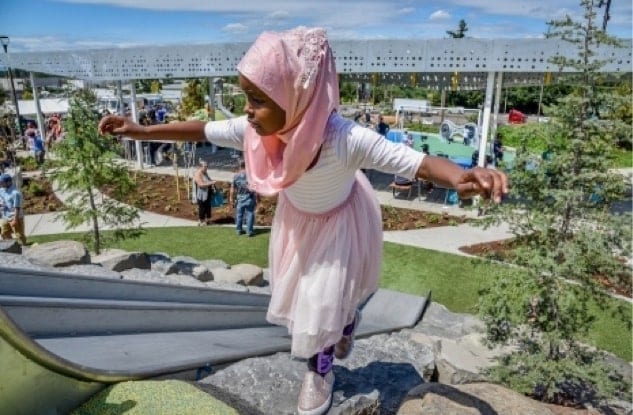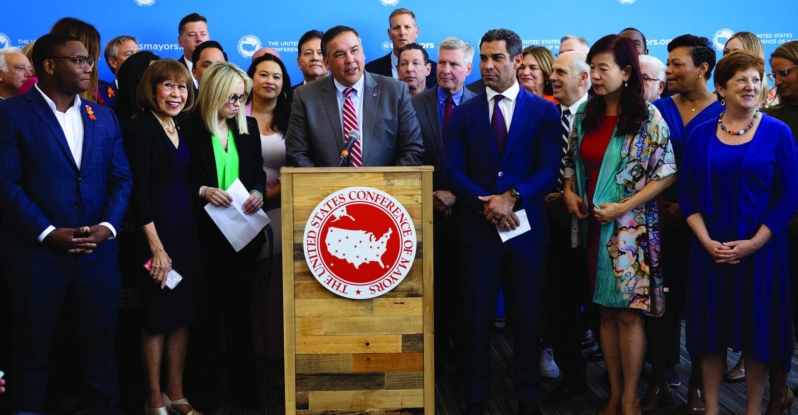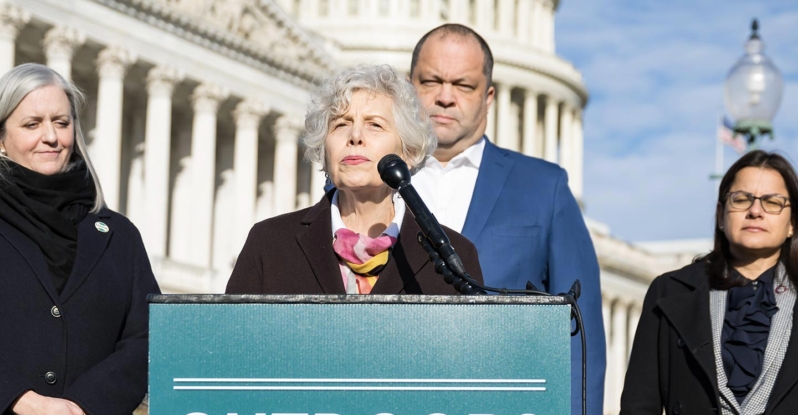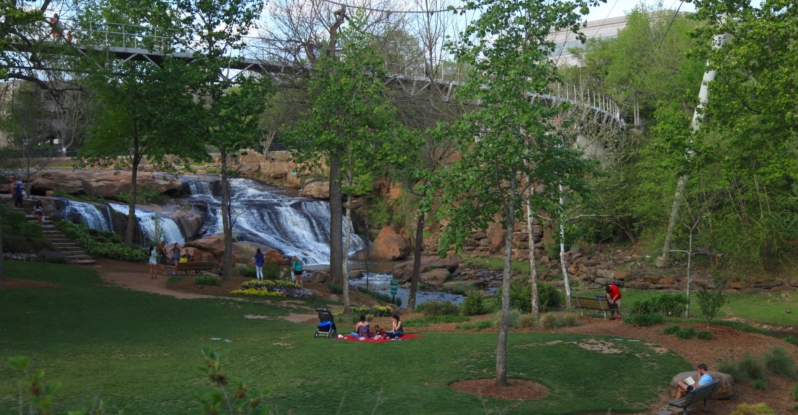Originally published at Governing.
The recently dedicated Thomas Cully Park in Portland, Ore., stands on 25 acres that was once a landfill. Located in a diverse, park-deficient neighborhood, the project is the culmination of a unique partnership between the community nonprofit Verde and Portland Parks and Recreation. Together, this public-private partnership has raised more than $13 million to build the park, and $500,000 of that amount came from a little-known federal program whose future, like the new park’s greenery, is in need of nurturing.
These investments have yielded more for Portlanders than simply providing recreational green space and reclaiming once-unusable land. As the founders of Verde describe it, Thomas Cully Park helped to build environmental, social and economic wealth by involving community members not only in the planning of the park but also by hiring local tradespeople and other workers to build it. Ambitious contracting and diversity targets helped to ensure that low-income residents and people of color benefited directly.
The new park’s amenities go beyond the traditional ones, such as a community garden, which allows urban residents to grow their own produce, along with a large playground and water play facilities. It also features a city-first Native Gathering Garden, designed in concert with the area’s urban Native American community to reconnect them to indigenous land practices.
And yet little-noticed in all this discussion about its benefits is the fact that Thomas Cully Park was made possible in part by a relatively new federal matching grant program: the Outdoor Recreation Legacy Partnership (ORLP), which is funded through the Land and Water Conservation Fund and administered by the National Park Service.
In enacting the ORLP, Congress recognized that too few conservation dollars were being granted to cities, where 80 percent of Americans live. Since 2014, Congress has funded $50 million in ORLP grants, with a dollar-for-dollar matching requirement by the benefitting cities. That’s $100 million in new funds to improve parks in distressed communities, not including the millions more that are often leveraged in local public and private investment. Best of all, ORLP is not paid for with taxpayer funds, but through offshore oil and gas royalties.
Portland is not the only city where the first parks to receive ORLP funds are opening and providing multiple community benefits. Madison, Wis., created its six-acre McPike Park on a former industrial site. Denver developed a 4.5-acre open-space park on vacant land in a dense residential neighborhood that offers both recreation and youth science education opportunities.
And more parks benefiting from the federal program are on the way. Atlanta will transform a vacant property to connect a minority neighborhood to Atlanta’s BeltLine trail network. And Camden, N.J., will remediate and create 13 acres of new parkland to improve access to the Delaware River waterfront for neighboring distressed and underserved communities.
As a funding model, the ORLP achieves something of an equity triple play. It helps to create new outdoor recreation for urban citizens, promotes innovative partnerships for funding and in some cases generates job opportunities for residents. While relatively small, the ORLP is often just the shot in the arm needed to get important projects off the ground or to close funding gaps that help nudge these park projects over the finish line.
Our organization, City Parks Alliance, and its bipartisan Mayors for Parks Coalition hope to see the Outdoor Recreation Legacy Partnership expanded significantly. For now, though, to ensure that the ORLP continues its good work, Congress must reauthorize the Land and Conservation Fund. To further secure the ORLP’s future, Sen. Kamala Harris of California recently introduced the Outdoors for All Act, codifying the current ORLP program and providing a guaranteed source of funding for urban parks using revenue from offshore oil and gas. This bill is the companion bill to California Rep. Nanette Diaz Barragán’s legislation that was introduced in the House.
These efforts in Congress deserve continued broad bipartisan support. The ORLP is a smart investment of federal funds, returning far more than it costs and achieving important environmental, social and economic objectives that improve the quality of life for all urban residents.




